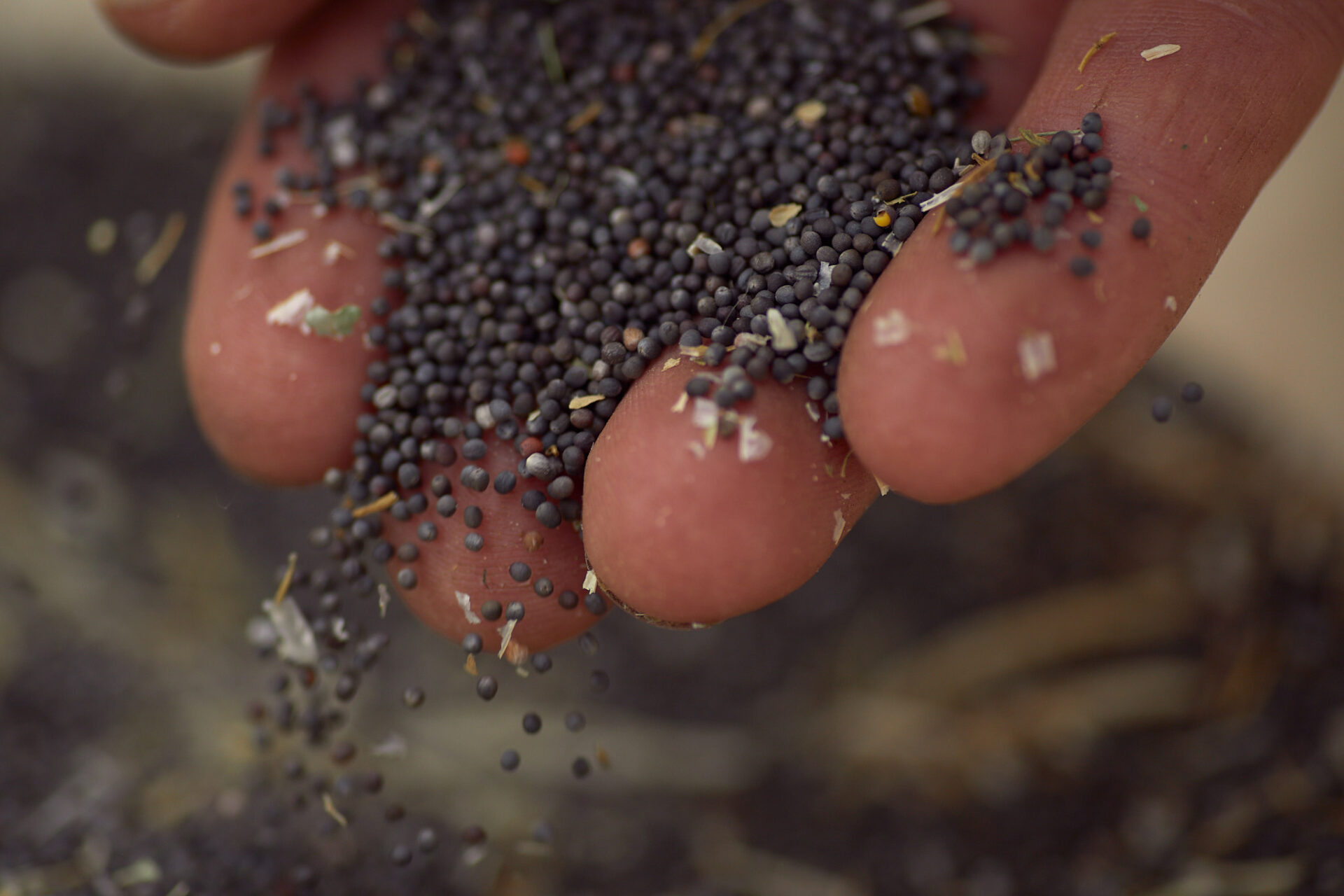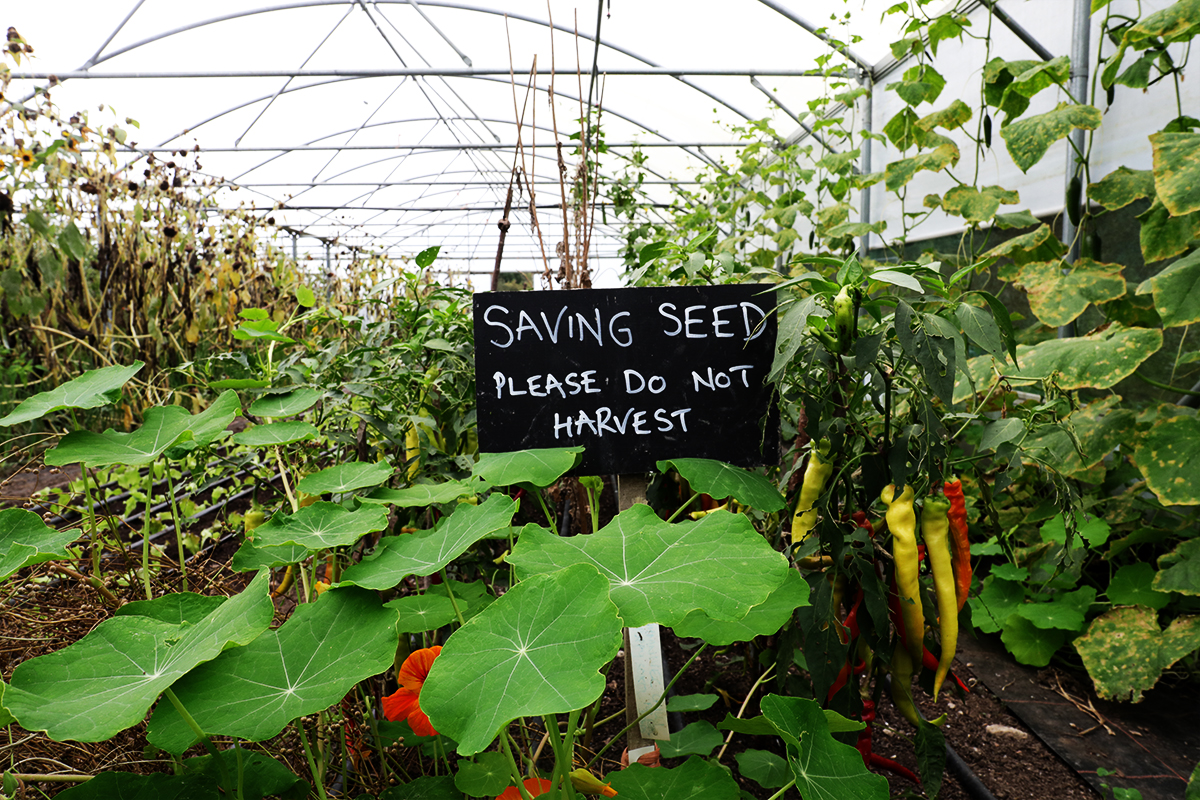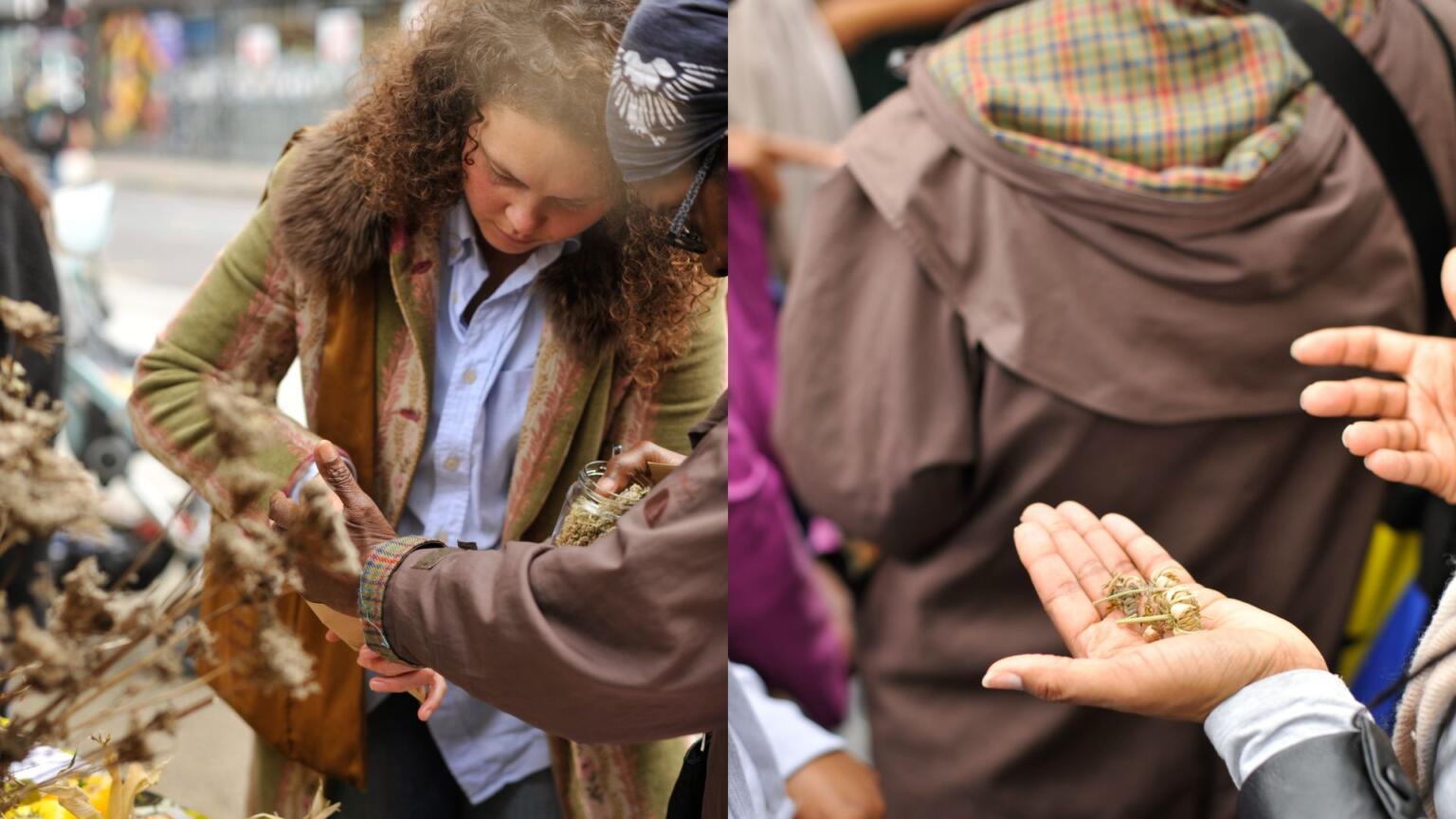Join us in raising £20,000 to increase seed diversity for climate resilience this #SeedWeek, with every donation doubled between 22 – 29 April ➡️ Click to donate or share
Every seed has a story of survival.
The vegetables, grains, and pulses we eat every day exist thanks to the generations of farmers who have saved these seeds, season after season, through sunshine and through storms. Seed nurtured for yield, flavour, nutrition, beauty, resilience, and adaptation to local conditions. Over thousands of years, this careful practice has gifted us with a rich diversity of crops. In the miraculous variety of seeds saved, over millennia, is the memory of how to flourish whatever the challenges life throws at us. With climate chaos making storms our new norm, we need every one of these stories of resistance, revolution, and survival. The stories held by our seeds.

This #SeedWeek, between 22 – 29 April, we are sharing more about the role of seed in cultivating climate resilience. In the hopes of blooming beyond our usual online habitat, we are asking our network to join us in spreading the word of the power of seed.
During #SeedWeek we are also raising £20,000 for Gaia’s Seed Sovereignty Programme, with every donation doubled by The Big Give’s Green Match Fund. Every £10 becomes a powerful £20, every £50 becomes £100, every £100 becomes £200: towards retraining growers to save seeds adapted to their bioregions, helping market gardeners diversify into seed production, and accompanying communities reclaiming their rights to a climate-resilient food system. The money we raise together this week will grow this work, restoring diversity in our fields and all that comes with it, for people, our planet, and those we share her with.
Double your donation this week
What is seed sovereignty and why does it matter?
Seed Sovereignty is the right of a farmer to save, use, exchange and sell their own seeds. But since the industrialisation of food systems,our sovereignty has been dismantled. Agribusinesses seek to control seeds through intellectual property rights and the rise of bioengineering technologies such as hybrid and genetically modified (GM) seeds. These corporate-designed seeds often require chemicals to grow, and farmers are prevented from saving seeds as they have done since time immemorial. Forced to buy seed and chemicals anew each year, they are cornered intodependence, higher costs, and degraded soil, while funnelling profits into agro-petro-pharma-chemical corporations. A vicious cycle.
Today, 75% of the world’s food comes from just 12 plant species, down from the thousands we once relied on. The push for uniform, high-yielding, and easily marketable varieties – geared toward large-scale monoculture and reliant on chemicals – has come at the cost of agrobiodiversity.
But why is diversity so important?
Seeds saved by small scale farmers are locally adapted, thriving in specific environmental conditions and better able to adapt to the intensifying weather caused by climate change. These seeds are also often open-pollinated, working in collaboration with a healthy community of insects and other pollinators. Plus, they can be saved and replanted each year,unlike hybrid varieties. Agroecological farming, in particular, emphasises working with the land to restore and regenerate it, rather than depleting it, ensuring that these locally adapted seeds continue to thrive as part of their ecosystems for future generations.

Locally adapted, open-pollinated seeds, which have been stewarded over time to thrive in specific places, are vital for climate resilience. Genetically diverse seeds, grown in a biodiverse environment by a diversity of people, make our food system more adaptable to unexpected, extreme stress: whether droughts, floods, or the collapse of global supply chains. Diversity boosts resilience in any system because it mitigates risk, providing a variety of solutions for any given challenge: honouring the wealth of diversity that seed sovereignty can bring to the heart of our food system is the secret to meeting any challenges that climate chaos pose.
Seed sovereignty is essential for a just, sustainable, and food-secure world
By promoting seed sovereignty, we not only promote sustainable, resilient food systems but also preserve traditional knowledge and cultural practices. It’s a movement for food justice, empowering communities to have agency over of their food sources and culinary culture and ensure that future generations can grow culturally appropriate foods without external control. Promoting seed sovereignty and seed sharing also nurtures resilience in farmer networks and local communities, bringing people together to celebrate in rhythm with the seasons of sowing, harvests and seed exchanges.

Seeds hold the key to a food system change. By empowering communities to maintain control over their seeds and adapt them to local environmental conditions, we are ensuring that food systems remain diverse and sustainable even in the face of climate change.
The Seed Sovereignty Programme is nourishing a biodiverse and resilient seed system in the UK and Ireland by training, supporting, and empowering farmers to save and exchange regionally adapted seeds, building a movement to reclaim this vital agricultural practice.
